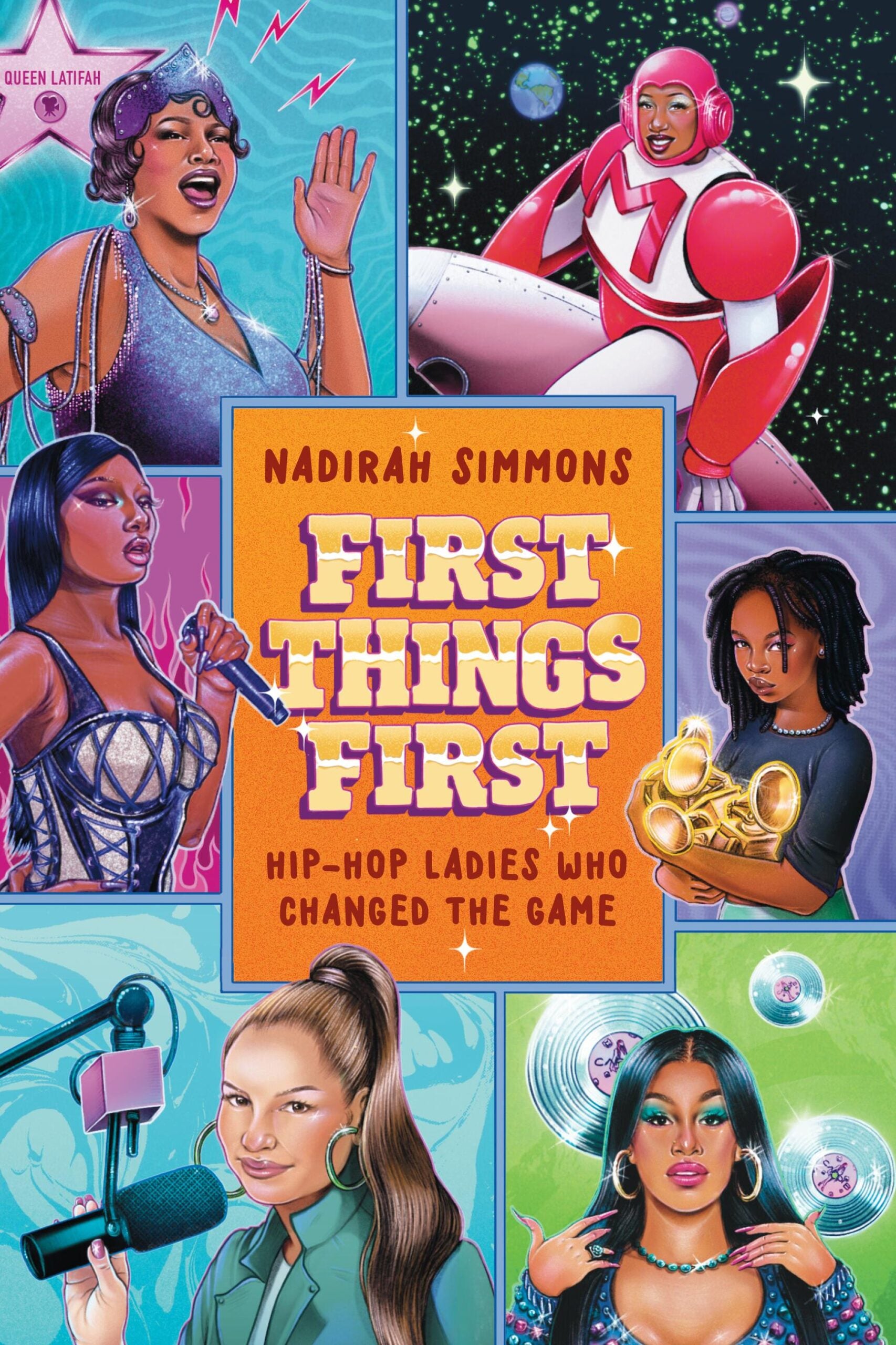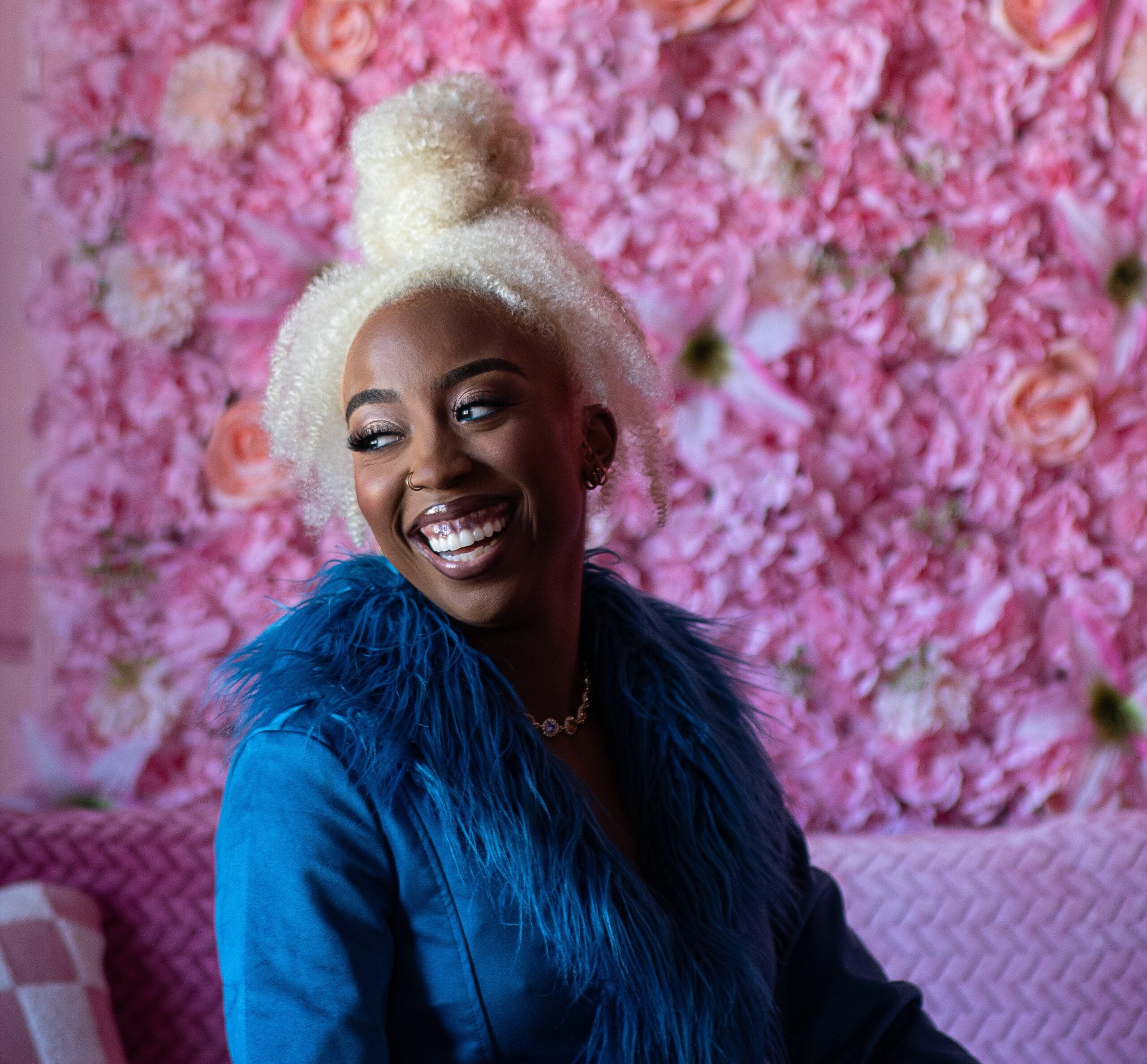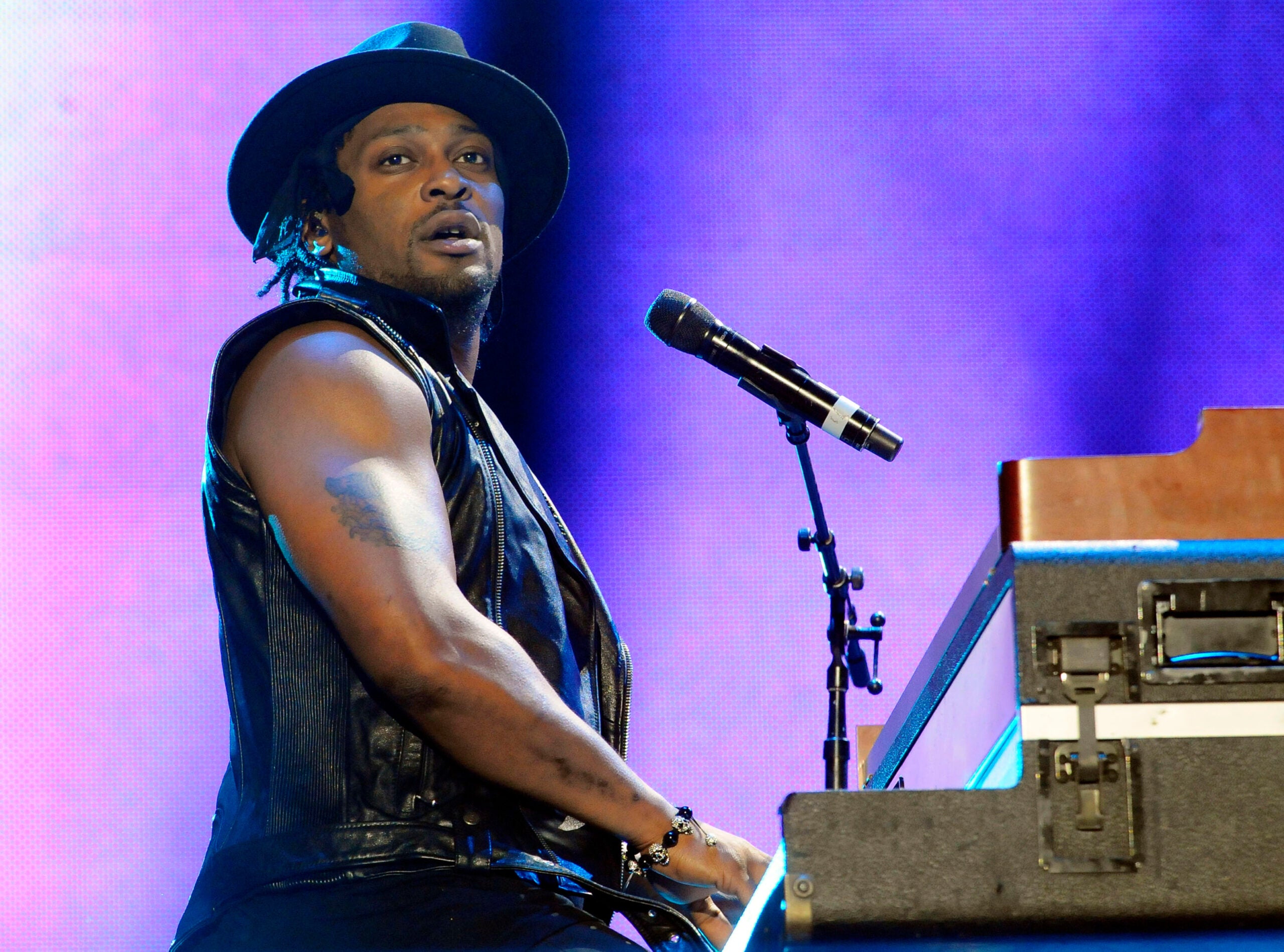Nadirah Simmons is a writer who specializes in Black history, hip-hop history and pop culture. In 2018, Simmons created “The Gumbo” — an innovative media space that celebrates the excellence and activism of Black women in hip-hop.
Now, she is celebrating some of these trailblazing artists in her pop culture history book. It’s called “First Things First: Hip-Hop Ladies Who Changed the Game.” The book covers icons like Queen Latifah, Mary J. Blige and the Queen Bee herself, rapper Lil’ Kim.
In an interview with WPR’s “BETA,” Simmons said rap and hip-hop can often be smashed together, but she defines them as different things.
News with a little more humanity
WPR’s “Wisconsin Today” newsletter keeps you connected to the state you love without feeling overwhelmed. No paywall. No agenda. No corporate filter.
The following interview has been edited for clarity and length.
Doug Gordon: How do you define the difference between rap and hip-hop?
Nadirah Simmons: Rap is very specific when it comes to the genre and rapping and the style of music, but hip-hop — as much as I try to not use the word “culture” because I feel like we overuse it — it really is a culture.
It’s expansive and it involves so many things, not just those elements that we listed, even though, yes, those are very big parts of it.
But when you talk about the documentation and the magazines and the fashion and the journalists and the historians, there are so many different elements that make up this culture that really evolved from that party that we created, as the first official start date of hip-hop on Aug. 11, 1973.
DG: I love the way you structured “First Things First.”It’s got this stream of consciousness vibe and these great thought experiments. It reminded me a lot of Shea Serrano’s books. We’ve had him on the show a few times, and I think you’ve had an interview with him. Was he an influence on your writing?
NS: Absolutely, 110 percent. I think the great thing about Shea’s work, and something that I wanted to do with the book — there’s so much history in there. There are so many facts, and I am a nerd. I can admittedly read through encyclopedias and pages and pages and pages of dates and retain the information.
But I think a lot of times, when people are getting so much information thrown at them, it’s really hard to remember a lot of this stuff. And the book was so important to me to write, because I’m telling these stories of these women who don’t always get their just due or simply aren’t known about.
So I wanted there to be a way for them to feel like they were in conversation with me, or to play one of the games on the inside, or solve one of the puzzles so that they could better retain the information, besides me just throwing a bunch of facts and dates and histories at them.
I really wanted to have a place where women and especially Black women could write about hip-hop.
Nadirah Simmons
DG: You created an online platform called The Gumbo in 2018. Can you tell us about it?
NS: Yeah, I really wanted to have a place where women and especially Black women could write about hip-hop. I ended up working in TV, going into TV. And I saved all of my checks from my job at the time for a year to launch the platform.
But I was really disheartened by a lot of my peers and people I knew who were exceptional writers and weren’t getting the opportunities.
When you think about the community that hip-hop comes from, it’s Black and brown communities. It’s crazy to me that the people who are part of it, especially women, aren’t able to be fairly compensated or aren’t given the space to talk about things or even the space to celebrate particular women.
So I kind of wanted to change that. And, like I said, because I’m a nerd, I wanted to have this kind of historical archive so someone could learn about Gangsta Boo for the first time, or they could learn about the connections between jazz and Mary J. Blige for the first time. I really wanted that to exist.
So now, if someone beyond the scope of whatever it is they’re seeing out there in their day to day lives, if they’re like, ‘Wait, I think I’ve heard of this person before,’ they can go online and they can see an article on The Gumbo and they can learn about that.

DG: Two of your favorite hip-hop artists are Lil’ Kim and Mary J. Blige. I’m curious to know what they mean to you. Let’s start with Lil’ Kim. You say that she provided the first blueprint for the modern woman in rap. How so?
NS: Yeah, I could talk about Lil’ Kim all day, and I think that was one of the struggles with writing her chapters, because I do talk about her in that I was like, “How do I hammer this home?”
I think it could be best summed up by just literally looking at her and listening to her music. People often talk about, you know, the hairstyles and the fashion and the endorsement deals. And for every Lil’ Kim outfit or hairstyle that you look at, you can find a woman who raps today or in recent years who has replicated that in some way.
Halloween time comes around — even Beyoncé is dressing up as Lil’ Kim for Halloween. Like, everyone just understands her magnitude and her power. And I think for her to take a lot of the hits that she took, you know, when she’s on Rolonda Watts’s show and all these people are on a panel with her and telling her basically that she’s a terrible influence. There are people in the audience who are trying to berate her, make her feel bad, and she really stands up for herself. She makes it clear what she should be able to do as a grown woman, and how she should be able to operate — a lot of the stuff that women are able to do in rap today, from the fashion to the endorsement deals to the collaborations to the hairstyles with the designs in it.
Even in Cardi B’s recent video that just dropped, she has a hairstyle that’s similar to one that Lil’ Kim rocked. Like, a lot of the stuff that women are able to do, even with critique, because there’s always going to be haters, people that are like, ‘Oh, we can’t do this.’ But so much of what women in rap have today is because of a lot of what Lil’ Kim took.
DG: Very well said. Is there a particular Lil’ Kim song that you think really connects with your theory about her creating the blueprint?
NS: Oh my gosh, I want to say “Crush On You” because it’s one of her more popular songs. It’s just super obvious. Obviously, I think music today is a little bit different than then.
But the sampling of that song, the structure and what she’s rapping about and how she’s very braggadocious to me is just what makes me connect it to a lot of the women who rap today and have a similar style to her.
You can look at the women who rap today, whether they’s backpack rappers or a more sexual rapper, there’s a lot more freedom.
There’s still more work to be done, because there’s a lot that still holds women back. We are obviously living in a patriarchy. So, we got to do a lot more work to make them feel safe and comfortable and 100 percent free. But I love that there is a little bit more freedom in the music that we listen to today when it comes to the women.
DG: And hopefully there will be more than a little bit freedom as well. Let’s hope so. Let’s talk a bit about Mary J. Blige. You describe her as the first and only “Queen of Hip-Hop Soul.“ Why does she hold this status in your mind?
NS: Her coming out and coming into the music scene, for her to sing over hip- hop beats usually reserved for rap songs is just really unprecedented. And that’s not to say it hasn’t been incorporated in that way before. Of course, you have early iterations of new jack swing that kind of do that same thing.
But the great thing about Mary and what took it to the next level — and in the book, that’s why I mentioned a lot of the blues women — is because Mary gets on these rap beats and she starts singing about all of these different things that are usually reserved for ballads or are usually reserved for blues songs.
So whether it’s infidelity, whether it’s abuse or pain or heartbreak or loss or grief, she really pairs those things with rap and all of it together. It makes it hip-hop.
DG: What Mary J. Blige song resonates the most with you and why?
NS: Oh my gosh, OK, this is a tough one because I have so many. I’ll say “You Remind Me (Remix).” I love it because I love the extra rap verse in there.



